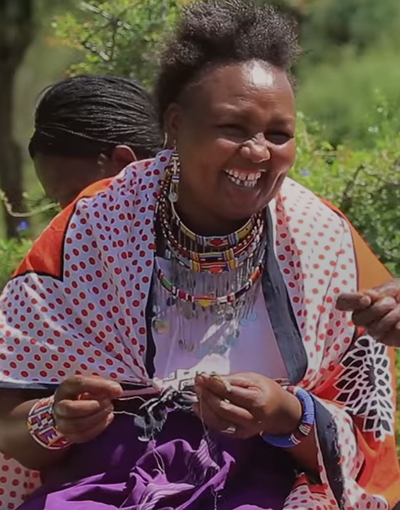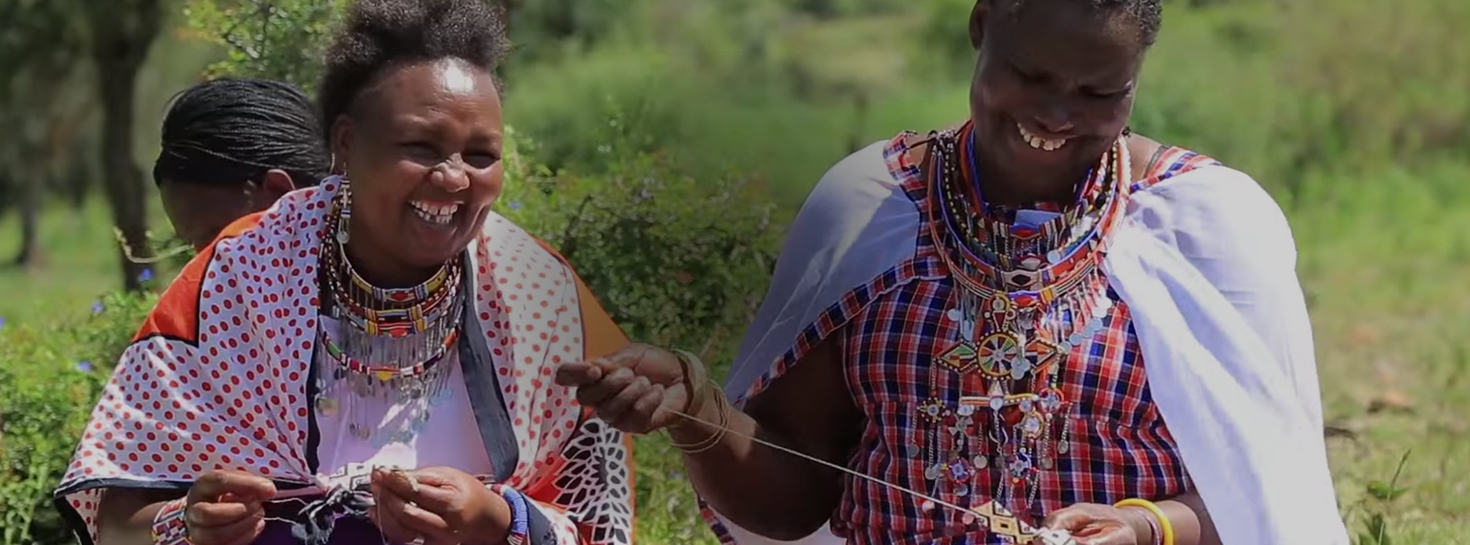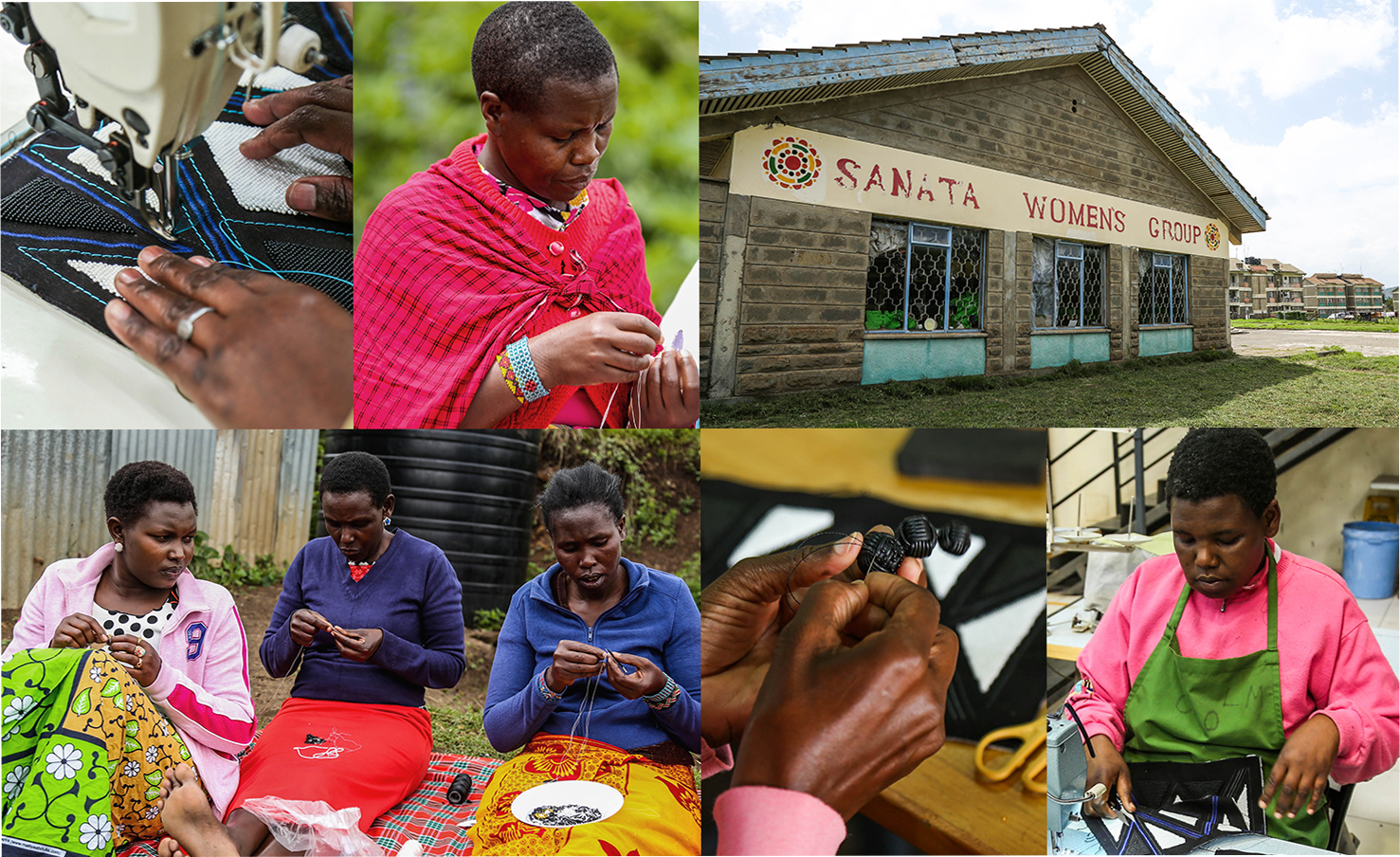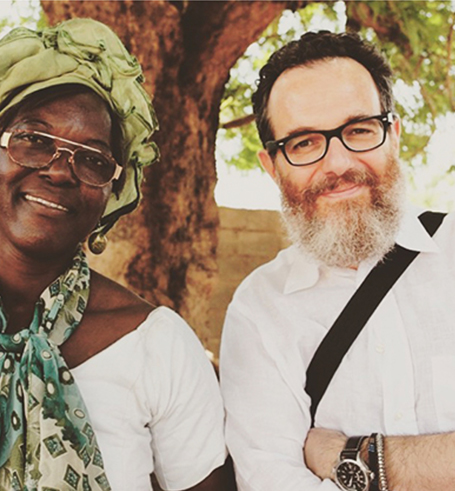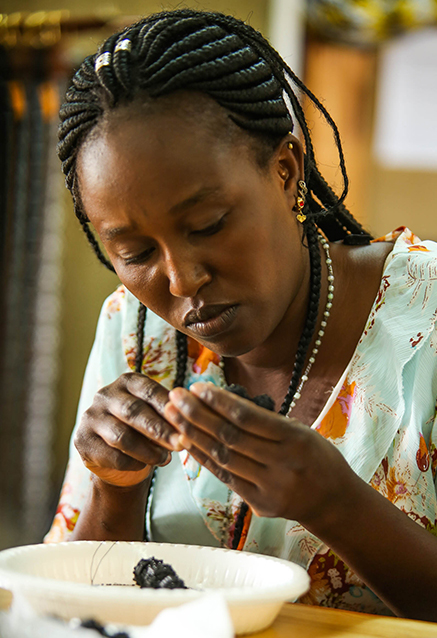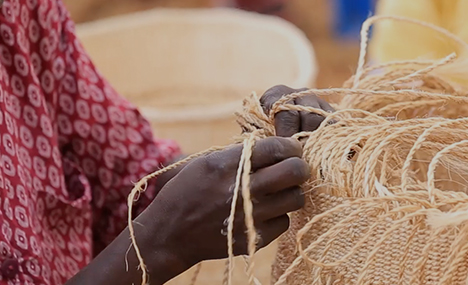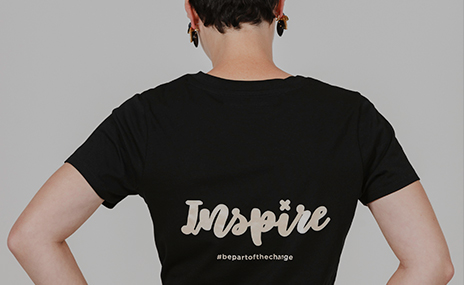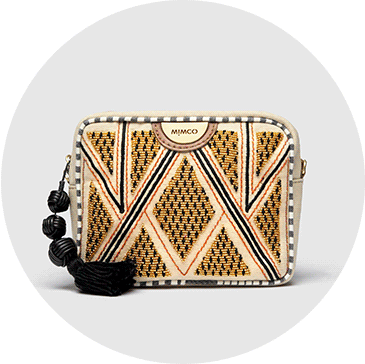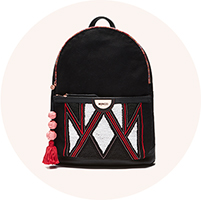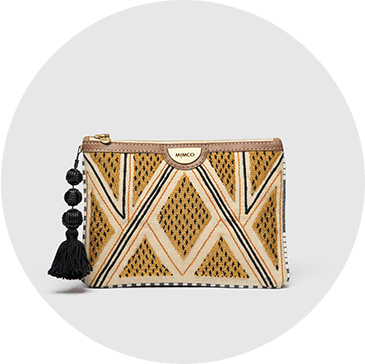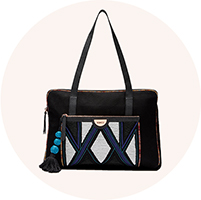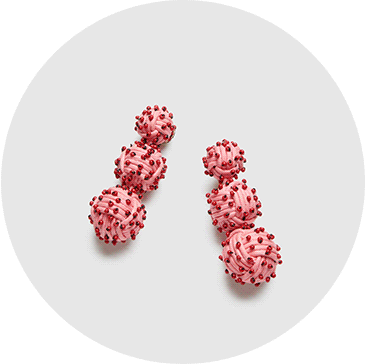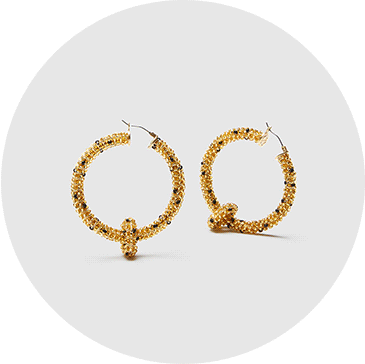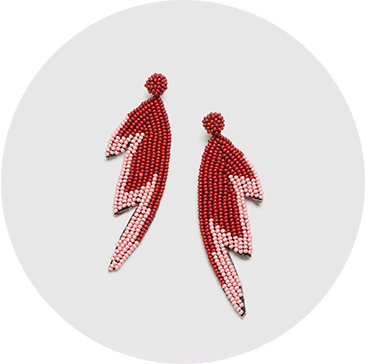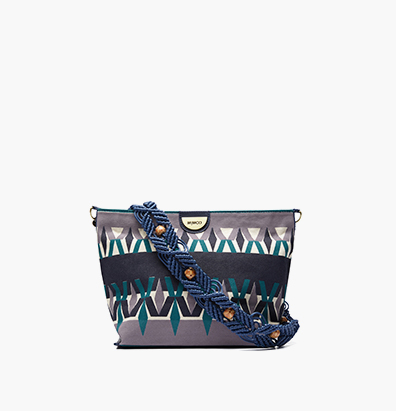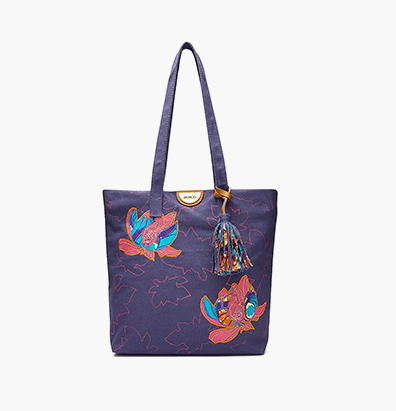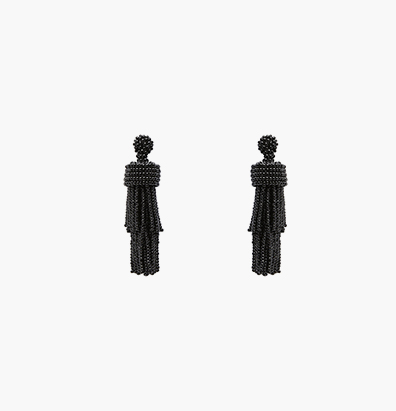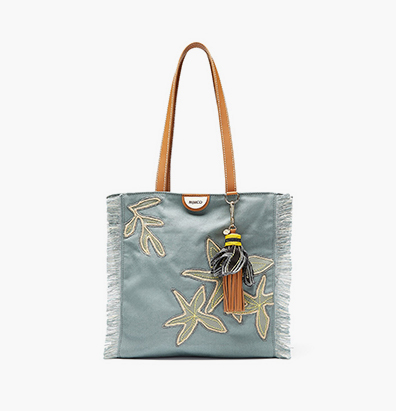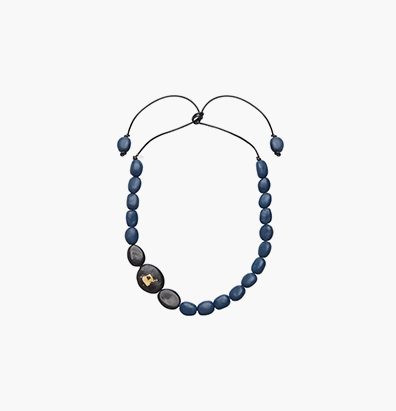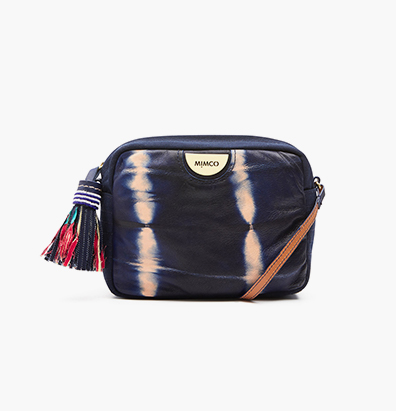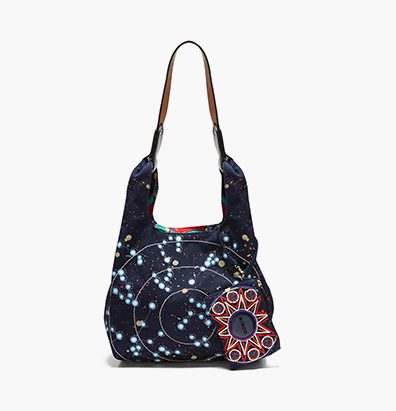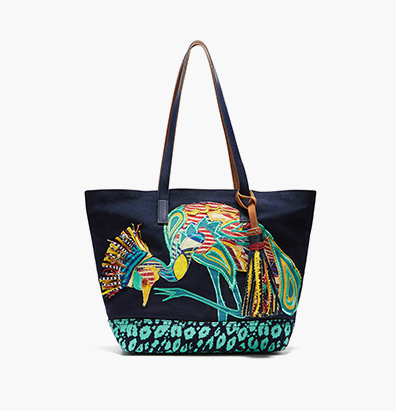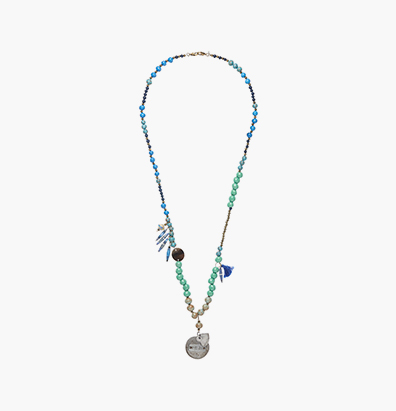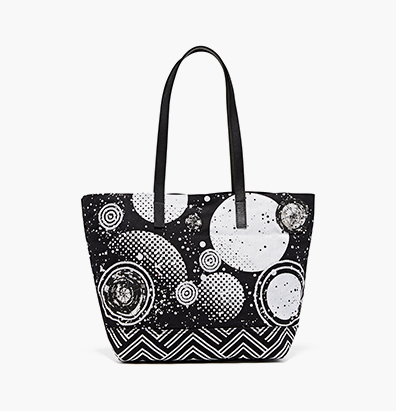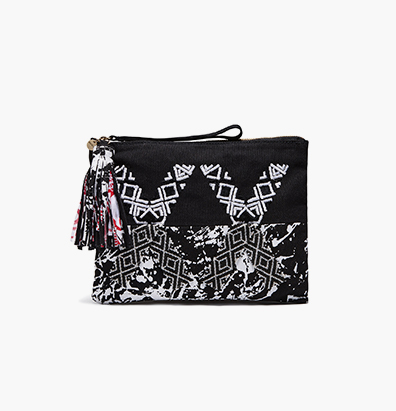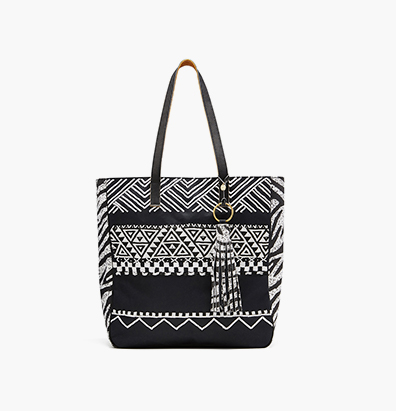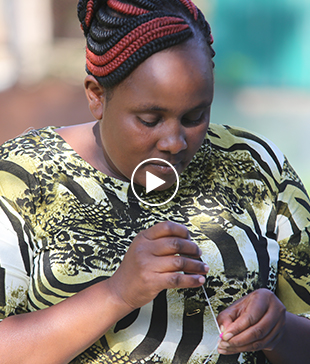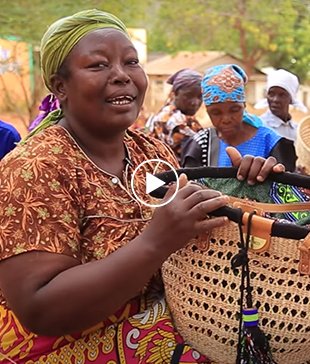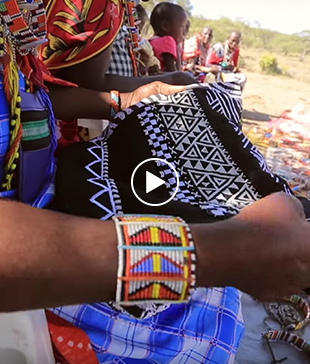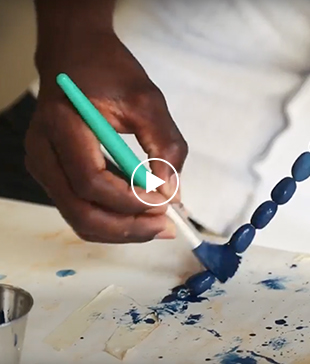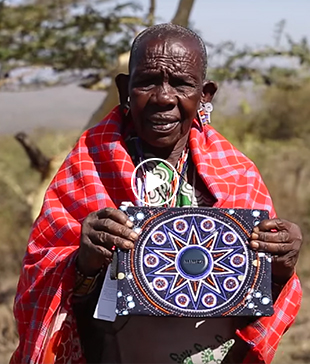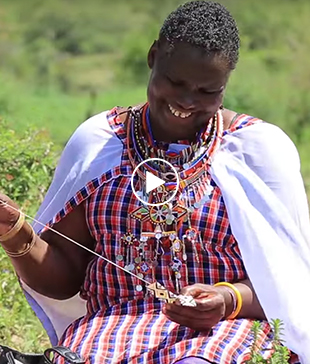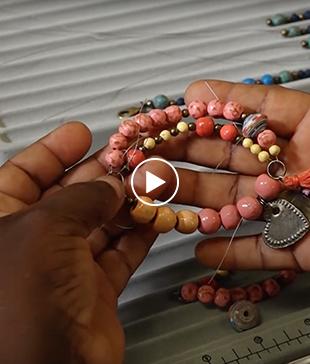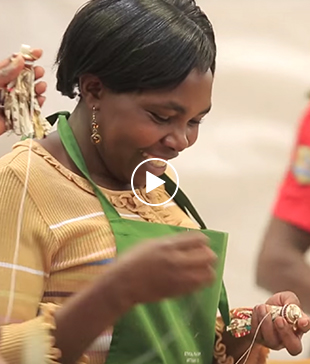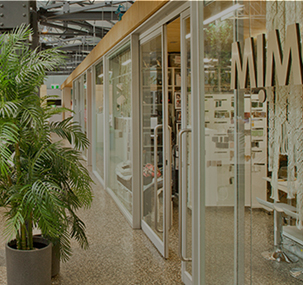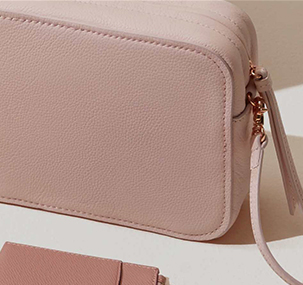Since its launch in 2009, the Ethical Fashion Initiative’s mission has been to build a responsible fashion industry that measures its impact; They connects artisans, living in some of the most marginalised communities in the world, with the global fashion industry. As a result of those connections, artisans are given the opportunity to work on multiple projects that provide them with an income, as well as skills training and development—empowering them to create a better life for themselves and their families.
The MIMCO x Ethical Fashion Initiative (EFI) journey began in 2014, with our first collection launching in 2015. Our ongoing partnership, and a recent trip to Kenya, allows us to understand how design for the greatest social impact—and to ensure we maximise the positive impact each collection will have on the artisans.
Our partnership provides employment opportunities that help build and strengthen the skills of artisans and communities, which empowers them to eventually take work into their own hands.
Simone Cipriani
Simone Cipriani founded the EFI with the support of the International Trade Centre in 2009. We were inspired by Simone’s message of sustainable, ethical and artisanal manufacturing and wanted to play an active role in empowering the artisans, many of whom were women, and to spread the word of EFI’s work.
Simone's passion, commitment and resilience is at the heart of the initiative’s mission.
“Seeing complete change in the lives of people we work with is motivational and inspiring. Through work, artisans are able to take control of their lives and change them for the better. This result is priceless.”
Read our full interview
with Simone here.
Our MIMCO X EFI Collection
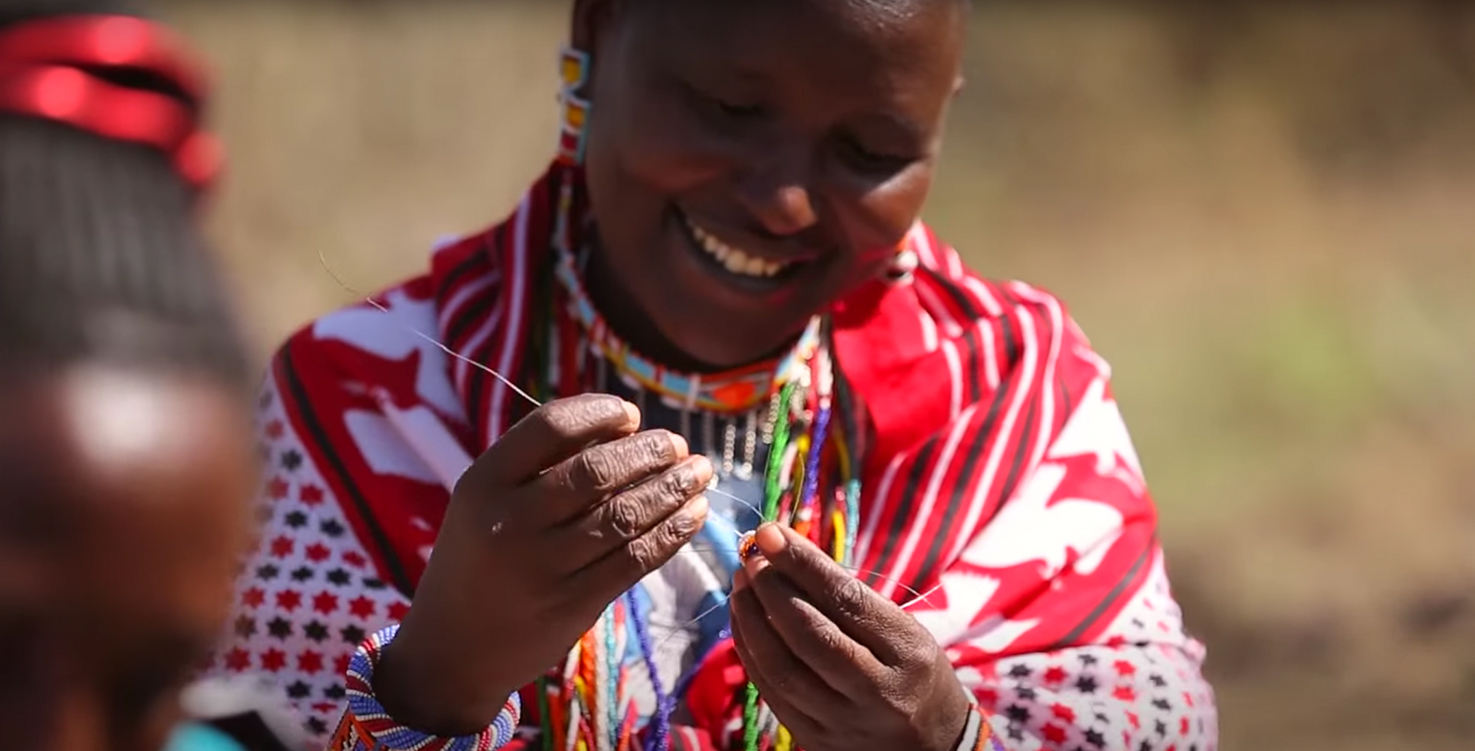

Our Impact
Every season, we publish the RISE report, an impact assessment tool produced by the EFI to track the positive impact of our partnership.
Previous Collections
Biome (Jewellery) +
96% of artisans are women.
100% improved their skills through on-the-job training.
48% saved their earnings and 52%invested in education, health and nutrition, housing and small business.
Biome (Bags) +
68% of artisans saved their income using it on school fees.
A regular income enabled artisans to maintain their health, with regular meals and improved healthcare access.
The order was produced using a new 3D embroidery technique - so new skills were learnt.
Indi Go-Go (Jewellery) +
80% of the artisans used the income received to fund their children's or their own education.
90% of the artisans invested their income in health, small business, education and housing.
100% of the order was finished with no environmental risk related to the product.
100% of artisans said they felt more confident in their daily tasks and activities.
Indi Go-Go (Bags) +
67% of the artisans used the income received to fund their children's, or their own, education.
67% of the artisans received training and learnt new skills to complete the order.
100% of participants were able to provide a regular, healthy meal for their households.
100% of artisans felt more confident in their daily tasks and activities.
Constella +
134 artisans (of which 89% were women) from eight different community groups in Kenya were involved in the production.
72% used their income to fund the education of their children, dependents or themselves.
100% of participants were able to provide a regular, healthy meal for their household and had access to healthcare if they fell ill – all would not have sought medical treatment without the income.
Waterwings +
86 artisans (of which 75% were women) from seven different community groups in Kenya were involved in the production.
69% paid complete school fees for 1-3 children.
68% had sufficient nutritional meals, regularly and 19% would not have sought the same medical treatment if they fell ill without the income.
Hispaniola +
68% used their income to fund the education of their children, dependents or themselves.
68% of artisans received training and learnt new skills to complete the order.
100% were able to provide a regular meal for their household with 86% of artisans able to access health care while working on the order.
Moon and Back +
142 artisans (of which 84% were women) from seven different community groups in Kenya were involved in the production.
79% used their salary to contribute to school fees throughout the order
46% never skipped a meal while working on the order, whilst 53% who required health care would not have sought the same treatment without the income.
Double Decade +
173 artisans (of which 78% were women) from eight different community groups in Kenya were involved in the production.
71.61% of participants contributed to all or part of their own or their children's school fees during the order.
66% never skipped a meal while working on the order, whilst 33% who required health care would not have sought the same treatment without the income.
Afri Graphico +
293 artisans (of which 93% were women) from eight different community groups in Kenya were involved in the production.
75% contributed to all or part or of the school fees during the order.
95% of artisans received training during the production of the order and 100% were able to pass on their knowledge and skills to others.
97% of participants were able to provide a regular, healthy meal for their household and 68% would not have sought medical treatment without the income.
WATCH OUR PREVIOUS EFI FILMS
FAQ
How are the artisans benefiting from the MIMCO x EFI partnership? +
Our partnership with the EFI goes beyond a traditional donation-driven initiative. We provide employment opportunities that help build and strengthen the skills of artisans and communities, which in turn empowers them to take the work into their own hands. The EFI is based around one concept: Not charity, just work. For working on each of the MIMCO collections, the artisans involved are paid a fair wage, which enables them to provide for their families, pay school fees, invest in small business opportunities and, in lots of cases, save their portions of income. The skills the artisans obtain while working on our collections (and other collections) enable them to pursue further employment opportunities.
Find out more
Why do you only work with artisans in Kenya? +
While our collections have been crafted by artisans in many communities throughout Kenya, we are yet to expand into other countries. Our journey with the EFI is far from over and we are constantly exploring the possibility of starting new projects with artisans in different locations. The EFI works with artisan groups in multiple locations (including, Burkina Faso, Cambodia, Ethiopia, Ghana, Haiti, Kenya, Mali and West Bank) with each area utilising the artisan’s skills and the materials available in those locations.
Find out more
How many women does the EFI employ? +
Since 2015, we have provided work and skills training to over 1400 artisans(and counting)—86% of whom were women.
Each collection (crafted for MIMCO and other EFI partners) requires a different set of and techniques from multiple artisans and community groups. The EFI has created a business support infrastructure based around centralised production hubs. This means men and women from numerous communities can participate in the production of collections, with the final product assembled, controlled for quality and shipped from the hub. The number of artisans involved will continue to grow as the EFI expands the locations in which they work.
